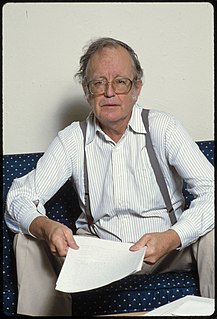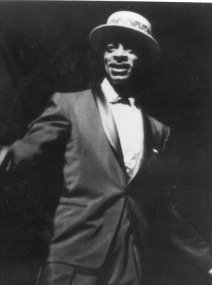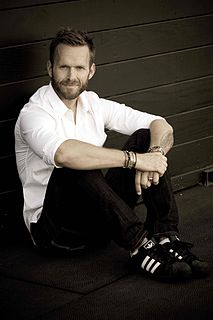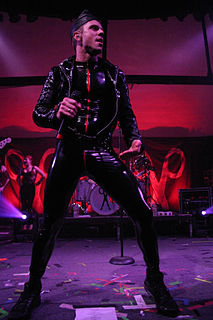A Quote by Wilfrid Sheed
For now, I'm supposing that all movements are equal, which they're not, except in this respect: that none of them gives a damn about artists beyond their immediate utility. Good movements will use a writer just as ruthlessly as bad ones; since they all fancy they have better things to do than worry about one man's artistic survival.
Related Quotes
What's more important is that we talk about movements; change happens through movements. The movement to end slavery, the movement to bring justice for those who have been left out of the system, movements to include women, movements around sexual preference - all these movements brought about change.
What an artist does, is fail. Any reading of the literature, (I mean the literature of artistic creation), however summary, will persuade you instantly that the paradigmatic artistic experience is that of failure. The actualization fails to meet, equal, the intuition. There is something "out there" which cannot be brought "here". This is standard. I don't mean bad artists, I mean good artists. There is no such thing as a "successful artist" (except, of course, in worldly terms).
When I wrote the opera, I made a deal with myself that for at least an hour a day I would work on it, even if it meant just sitting on my piano bench, staring into space and thinking about it. It's about keeping it regular, like your bowel movements - let's get real: it's your bodily artistic movements! It comes from the same place.
Historically the great movements for human liberation have always been movements to change institutions and not to preserve them intact. It follows from what has been said that there have been movements to bring about a changed distribution of power to do - and power to think and to express thought is a power to do- so that there would be a more balanced, a more equal, even, and equitable system of human liberties.
What is the influence of Sun Tzu in the world today? Perhaps there are others who are better qualified than I to speculate about that question. Sun Tzu's ideas, as expressed in his famous treatise, have undoubtedly influenced the nature of many revolutionary movements that are arrayed against more powerful forces, and in some cases - as in Vietnam - have played a useful role in bringing about success. But such ideas are always in conflict with other deepseated emotional factors, which propel dissident movements into the rampant use of terrorism and other forms of anarchistic struggle.
I have done research about people who think they're doing movements and people - like Madonna and professional dancers - who are actually 'performing' movements. The people who can connect and perform during their workout get results way above and beyond the people who are just going through the motions.
Well, the most important thing in choreographing for a specific tune is to get the story line and try to make your movements, rather than just actual movements, let them become more or less a physical drama to, to what they were singing about. And uh, also, uh, honor the beat and the rhythmic pattern of the musical track.
There's always the danger that there are so damn many things that a playwright can examine in this society of ours - things that have less to do with his artistic work than have to do with the critical and aesthetic environment - that perhaps he does have to worry about whether or not he is writing too fast. But then also, perhaps he should worry about getting as many plays on as possible before the inevitable ax falls.
If we are going to talk about the most recent of the "Indignados" movements in several countries of the world, including Europe, those are social movements but eventually they will evolve into political movements. This will happen because the traditional bourgeois parties have lost credibility after being the main political influence in most countries of Latin-America and Europe in the last 50 or 60 years.
The 20th century is a period defined by cultural and artistic movements. However, the 21st century creative-scape that we occupy now doesn't really have movements in the same way. Instead it's made up of diverse individuals working across various platforms simultaneously; art, architecture, film, music and literature.
The odd thing is that Trump's hand movements don't seem to coordinate with the topic at hand. Most pols manage to make their hand movements correspond with the message, so a slash will accompany emphasis, etc. Trump's got about three moves, the most notable of which is his "okay" gesture, making a circle with his thumb and forefinger. Anyway, Trump has only a few gestures, including that one, and to my eye he uses them seemingly indiscriminately. I've seen him use the "okay/f.u." sign to be pedantic.







































